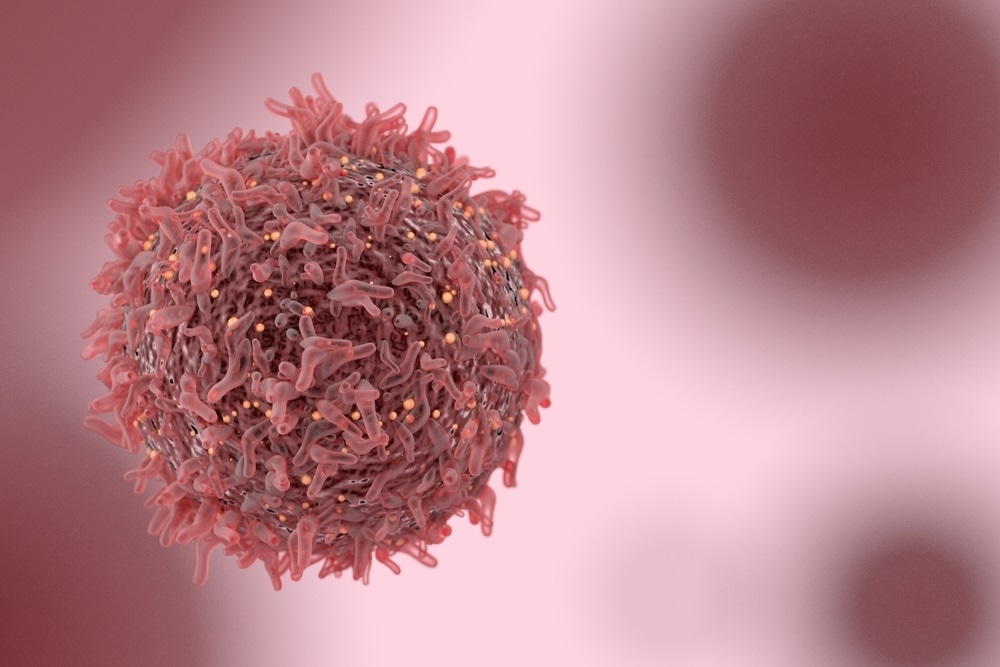Scientists believe they have discovered a new therapeutic approach to treat estrogen receptor-positive (ER+) breast cancer based on using androgen receptor-stimulating drugs in combination with standard drug treatments. The development is likely to lead to clinical trials in the near future. While the current study demonstrates its potential efficacy, the drug is still in its early stages and needs more testing.
 Image Credits: CI Photos / Shutterstock.com
Image Credits: CI Photos / Shutterstock.com
The androgen receptor as a tumor suppressor in breast cancer
Estrogen receptor-positive (ER-positive) cancer is the most common type of breast cancer, accounting for over 75% of cases. Tumors that are ER-positive grow in response to estrogen, and have been found to be more likely to respond to hormone therapy in comparison to those that are ER-negative.
Researchers have revealed that they could decrease the growth of ER-positive tumors by activating the androgen receptor. This particular receptor binds with "male" reproductive hormones, including testosterone, known as androgens. While these are considered male hormones, they are also produced by women.
In prostate cancer, the androgen receptor has been proven to promote the malignancy of the tumor. Scientists have assumed that the same is true in breast cancer. However, the current study provides evidence that the androgen receptor has the reverse effect in breast cancer. Scientists have shown that the androgen receptor works to suppress the tumor rather than to promote it.
Developing a new drug for breast cancer
There is pressure to develop a new, effective treatment for ER-positive breast cancer due to the fact that up to 35% of women diagnosed with this type of cancer eventually develop drug resistance to hormone therapies that are currently available.
Scientists are presently investigating the potential use of androgen receptor-stimulating drugs in treating a number of diseases. One of these drugs was tested by the team in the current study. This drug comes from a family of drugs known as selective androgen receptor modulators (SARMs), which have been explored for use in various applications from osteoporosis medications to fitness supplements.
The drug was used on ER-positive breast cancer cell lines in addition to tissue samples collected from patients with ER-positive breast cancer. Tissue from those who were showing resistance to current therapies was also included in the study. The team investigated the impact of the drug on the breast cancer cells in both culture dishes and transplants in mice to generate patient-derived models.
Researchers found that all models produced evidence of the tumor-suppressing effect of stimulating activity in the androgen receptors. A gene “signature” was derived from the different models, which was able to predict the survival of those with ER-positive breast cancer in larger studies. This androgen receptor signature was shown to be better at predicting outcomes than current breast cancer prognostic signatures.
Researchers compared the impact of treating ER-positive breast cancer tissues with a combination of the SARM drug and current breast cancer drugs, like tamoxifen, to treating cells with the current drugs alone. They found that the combination treatment was significantly better at reducing tumor growth. In addition, the SARM drug was concluded to be safe for use, with no side effects such as the development of male characteristics.
It is expected that the next steps will see the development of an androgen receptor activator drug for use in clinical trials to confirm the efficacy of the treatment. It may be several years before the drug is commercially available, however, the early research points to the development of a more effective drug for tackling a disease that impacts millions around the world each year.
Source:
Androgen receptor stops tumor growth in the most common form of breast cancer. Available at: https://www.eurekalert.org/emb_releases/2020-03/tes-ars032620.php